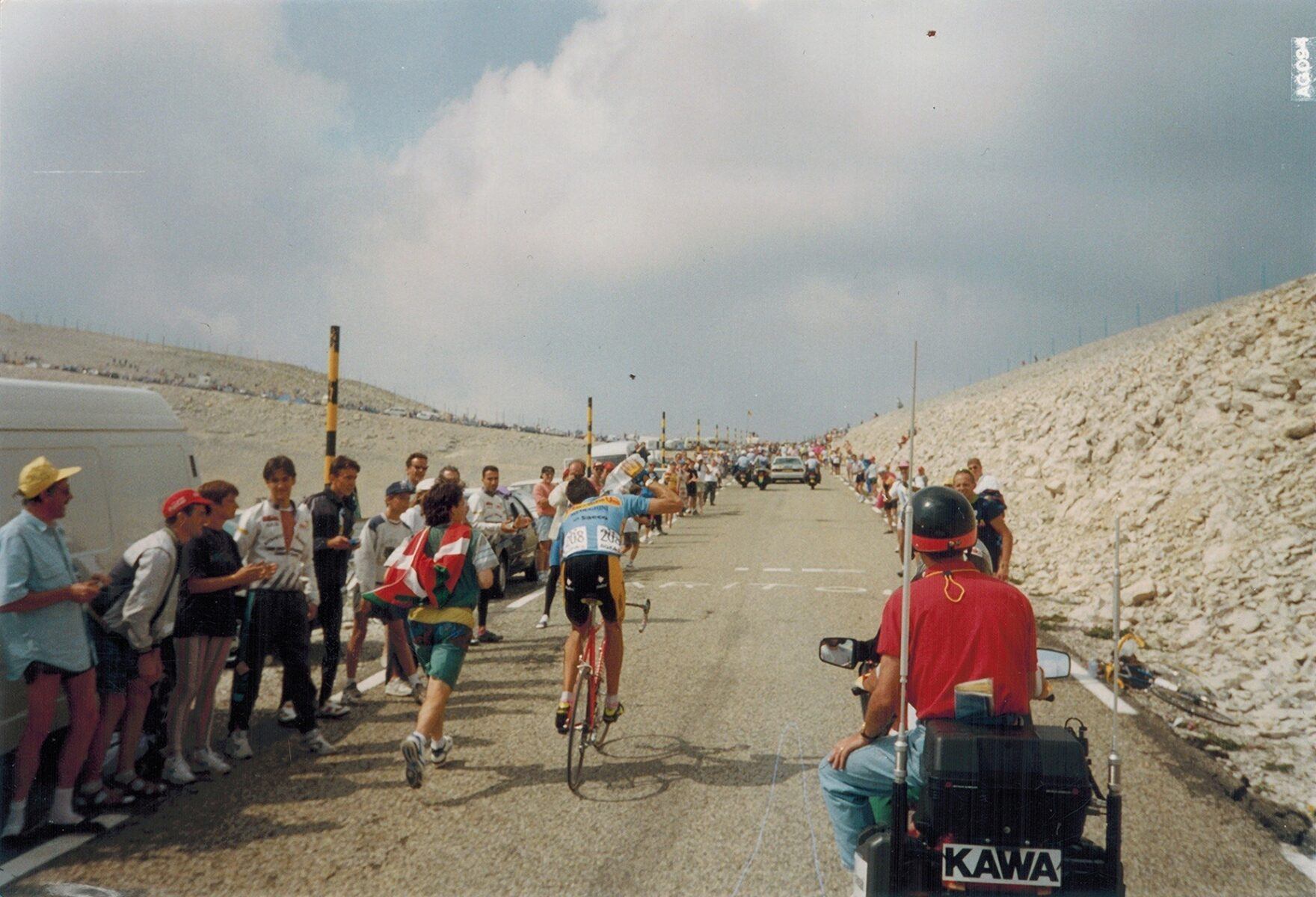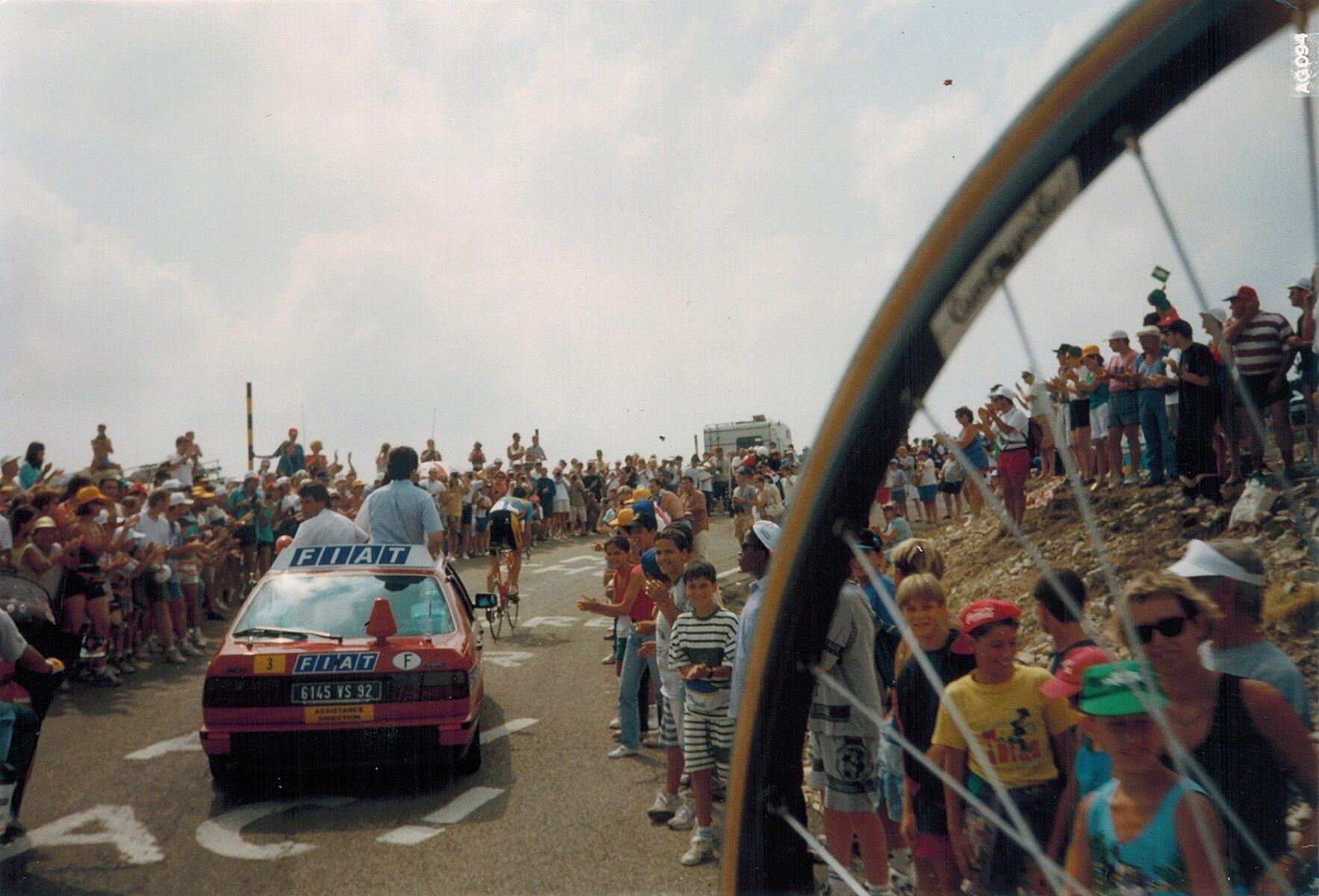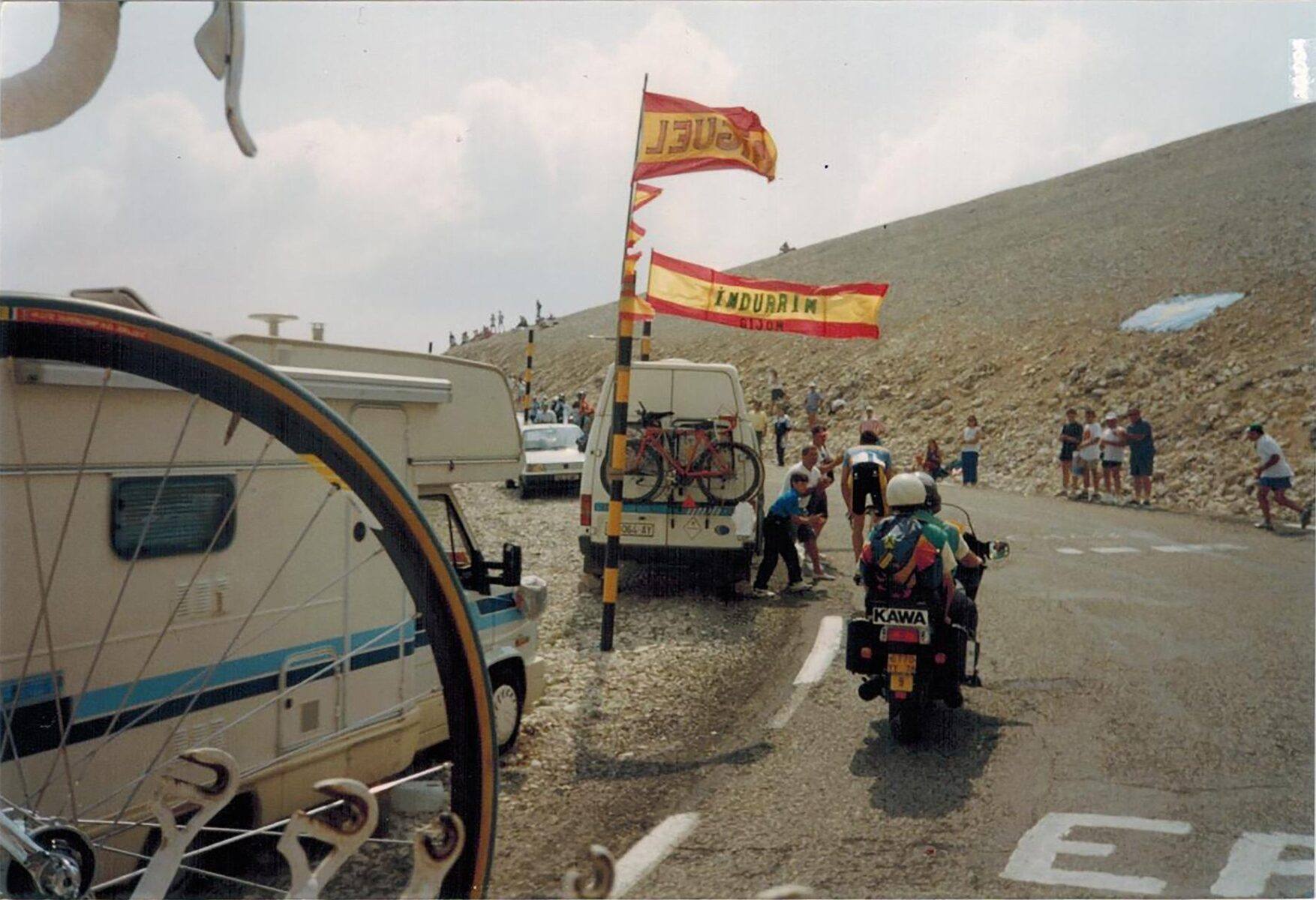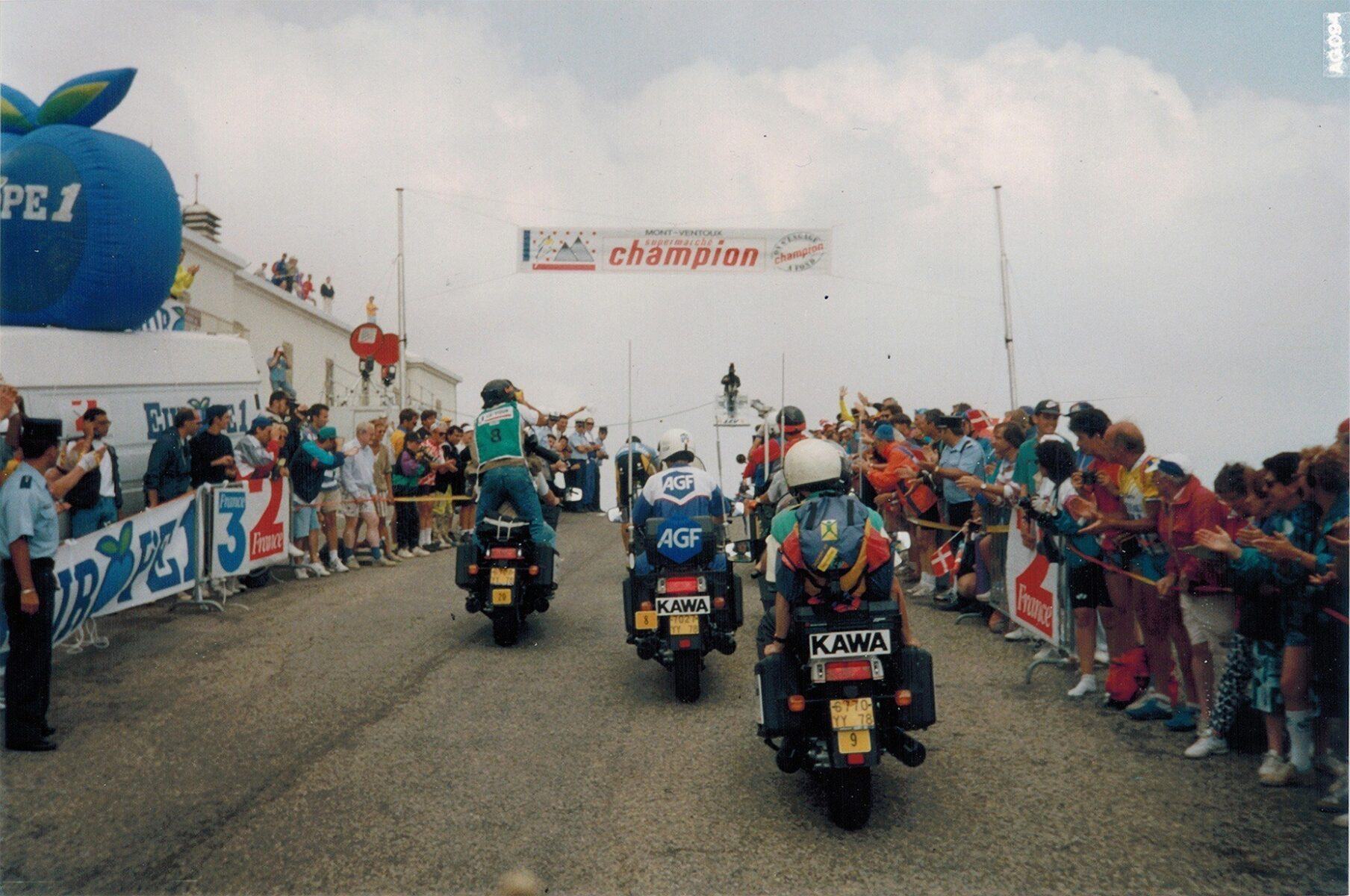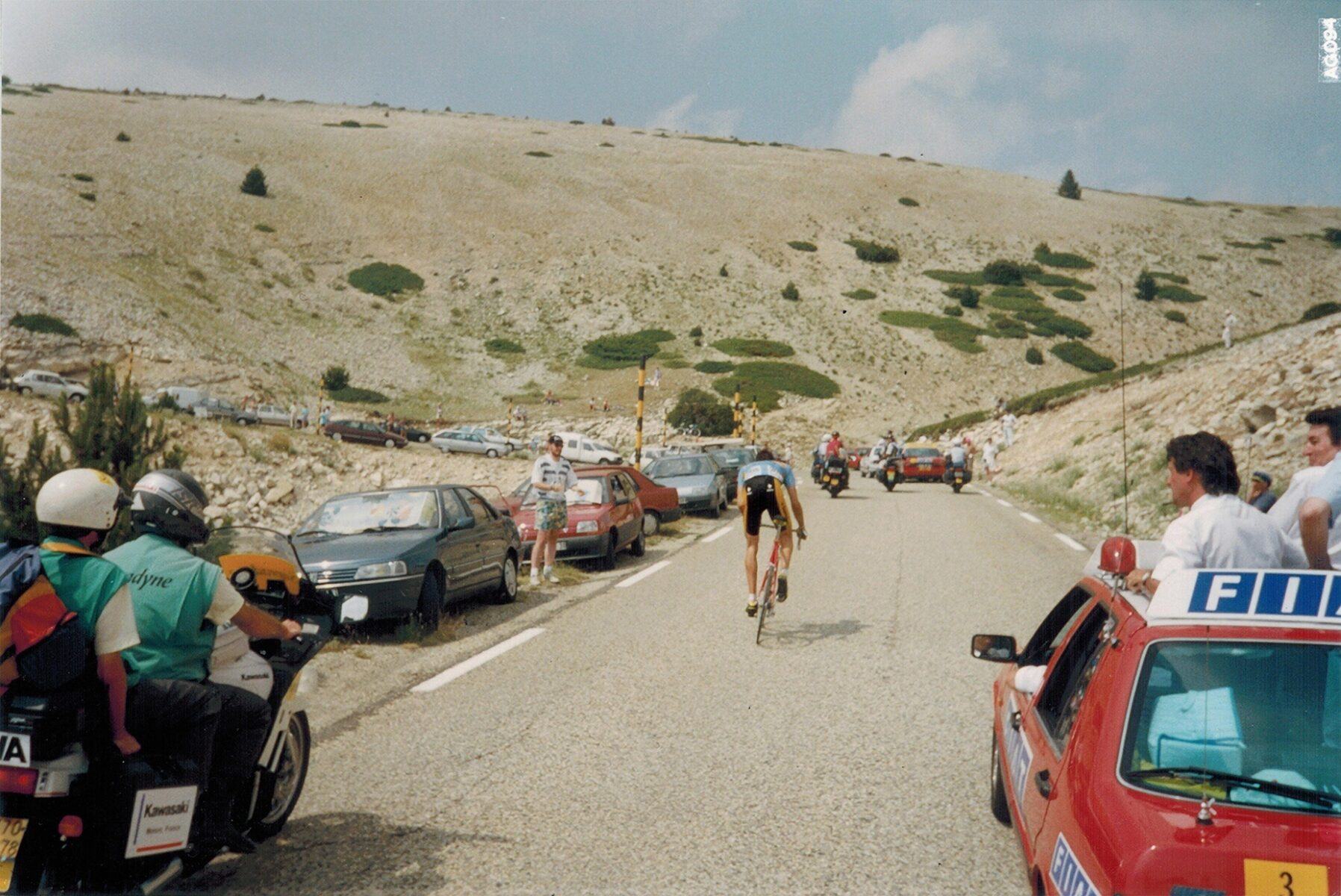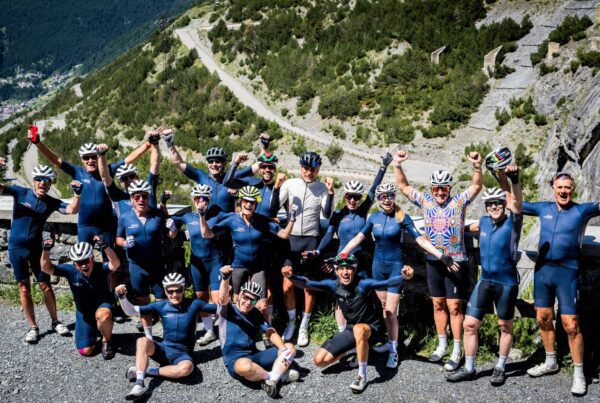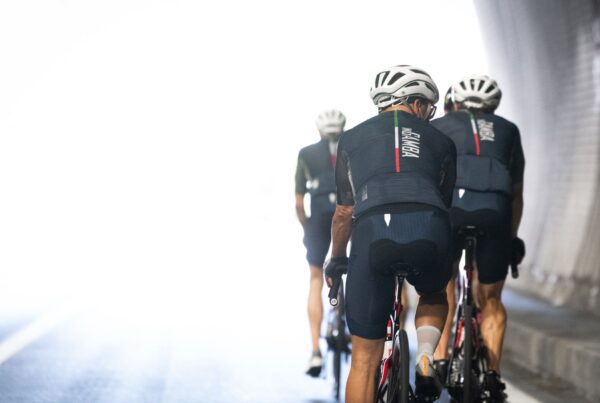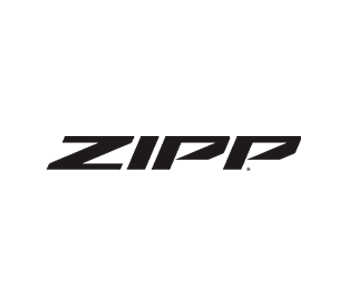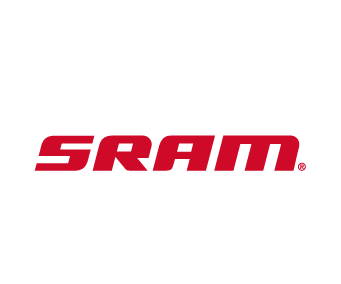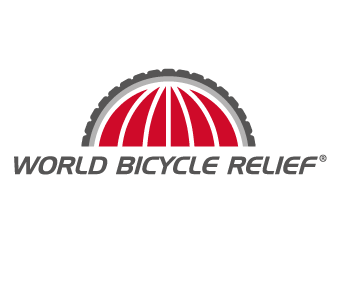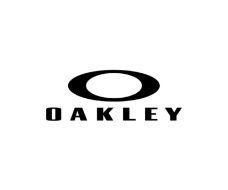With the Tour de France just two weeks away and the Olympics not far behind, we wanted to hear from inGamba’s own Eros Poli.
You may know him as Mario Cipollini’s leadout man in sprints during Grand Tours. Or maybe you recall his gold medal at the 1984 Olympics. Or perhaps you’ve been riding up a mountain pass with him during an inGamba tour, never realizing that the man joking with you up the climb was one of the great Italian cyclists of his time. Here, he’s sharing all of his favorite stories from those days.
What do you think of the WorldTour scene right now, having just come from the Giro d’Italia?
I admit, when right from the beginning there is this big gap between the rest of the field and Tadej Pogačar, it does start to feel a little boring. He had a gap that no one could close. Nobody can follow him. It is impressive!

Do you think the Tour de France is going to be like that this year?
I don’t think so. We don’t yet know who is going to be in top form for the Tour de France or who might be back, but the Tour is when riders are at their most competitive. Jonas Vingegaard might be back, and he could be very competitive. I don’t think he’ll be nervous about racing if he is back—he has nothing to lose. Primož Roglič also could be competitive, and it could be interesting to see two Slovenian riders, him and Pogačar, going for the win. And the winner will be the guy who doesn’t crash! Don’t crash, because if you survive, you can win the Tour.
Do you remember your first Grand Tour and how you felt?
I remember that my first Giro d’Italia was crazy. We want the Giro because I there with the team to support Mario Cipollini. My job was to was to lead him out—but that meant I had to stay in the peloton until the finish, and there was so much climbing! There were attacks on the climbs, and there were so many fans on the road.
People would be lining these mountain climbs and they would be so steep and hard, but people would be screaming at you. So, so noisy everywhere. People everywhere, cameras everywhere—the peloton couldn’t even stop to pee, there were so many people around! I remember feeling completely exhausted. And stages were much longer than they are now! Now, stages are very short but every day when I raced, it was over 200 kilometers. They changed their stages in the last seven or eight years to be more spectacular, to have more action in the race and be easier to watch on TV, but back then, they were so much longer.
What about the Tour de France?
I remember having to work so hard. We spent so much energy trying to control the race, but at the Tour, it’s not easy for people like me to attack. At the Tour de France, there is no real flat section like you have in Italy. In Italy, when they say a course is flat, it really is. In the Tour de France, the flat stages are rolling, which is hard for a big man like me. I was 84 kilograms when I was racing: I was very powerful and could do high speeds, but I would lose speed on uphills and then gain it on the downhills, which made attacks complicated.
The Tour de France is easily the biggest event in the cycling community. People who don’t care about cycling are watching it on TV. If you’re not in cycling, you still understand it. So if you’re a rider, you want to be there. But once you are there, you want to go home. You are suffering so much. I would be working so hard to get up these mountains and fighting just to finish the race. You just want to make it to the finish in Paris, it doesn’t matter if you’re the last one. I think I was the Lanterne Rouge (the last rider) at least a couple of times. I would spend all of my energy leading out Cipollini on certain stages and then just be trying to survive.
Do you remember any bad crashes?
I remember that I crashed on a rainy stage in Brussels on the same last 20k of the Paris-Brussels race. There was a session with the cobblestone. The stones were so wet and slick and I was fighting to be in the first position to take the cobblestones and… I started with too much. And I touched my front brake and crashed. I brought down five riders and broke my collarbone. It was a disaster.
What advice would you give riders who are doing their first Tour this year?
A race like the Giro is a school for the young guys who will go to the Tour de France. But riders think that doing the Giro will make them ready for the Tour de France. But you are never ready for the Tour de France for the first day. When you arrive, it will be a shock.
How do the Olympics compare to the Tour de France for cyclists?
When I was racing, the Olympics were strictly for amateur athletes—it was very different. So it was for young people, for the non-professionals. It wasn’t for money, it was for the Olympic spirit. In 1984 when I went and we won in the team time trial, it was the biggest event I could participate in because I was too young to participate in professional racing. Heading into the Games, we were training three times a day to be ready for the time trial. Being in LA for the Olympics was amazing. Growing up in Italy, I had this image in my head of what Los Angeles would be like, and it was amazing—even if we didn’t get to do much exploring and we were outside of the Olympic village with only cyclists.
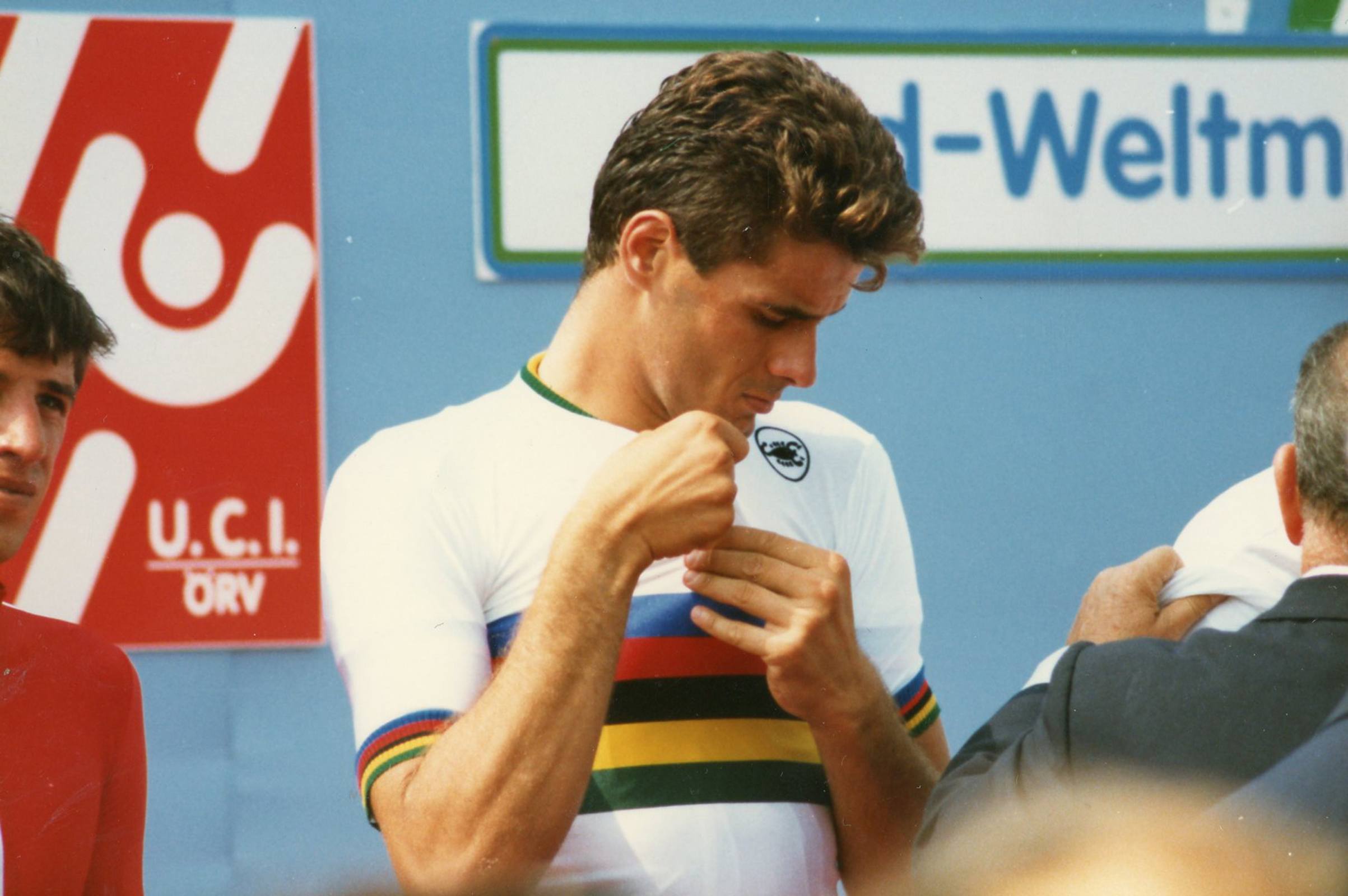
In 1988 in Seoul, we did get to stay in the village with everyone, and I enjoyed that: It was so interesting seeing the other athletes, all the different body types and talents. It was amazing to see what the other athletes were capable of!

